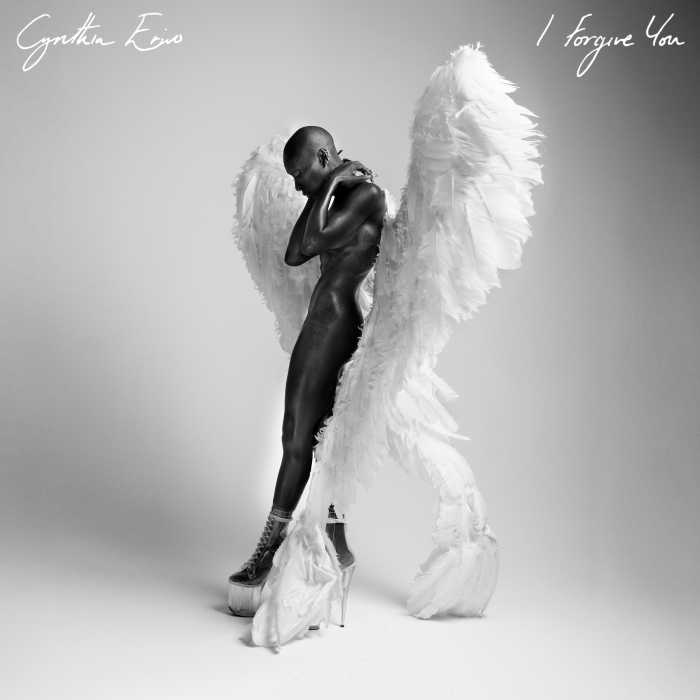As 2025 begins, Gay City News reviews the latest albums from trans singer/songwriter Ethel Cain and queer punk band Lambrini Girls.
Ethel Cain | “Perverts” | Jan. 8th | Daughters of Cain
Ethel Cain’s second album “Perverts” may as well be antique vinyl found in the attic of an abandoned house in a small southern town. Layers of scuzz dominate it. Cain’s piano sounds so brittle the strings might break. She uses guitar as a noisemaker, generating feedback and drones rather than melodies. On several songs, she also treats her voice the same way, humming through the wordless “Thatorchia.”
Cain’s debut “Preacher’s Daughter” was the start of a trilogy of concept albums, but “Perverts” is not a part of that cycle. She could’ve taken a direction that brought her closer to the mainstream. Although her 2022 single “American Teenager,” which was praised by Taylor Swift and Barack Obama, introduced a large audience to her work, it’s not characteristic of her music. Its ironically upbeat performance sets up lyrics about bleak life in a small town. Without spelling out all the details, the same dead-end mood permeates “Perverts.”
The title track runs 180 degrees away from “American Teenager” following Cain’s lo-fi rendition of “Nearer My God To Thee” with minutes of granular hiss. While Cain’s voice and the forlorn mood bear some similarities to Lana del Rey (especially on “Punish”), she pushes outside anything remotely resembling pop here. “Perverts” is a double album that runs 89 minutes, with four songs going on for more than 10.
A dirge with growling guitar, “Punish” is as accessible as “Perverts” gets, but its lyrics couldn’t get more bleak. Cain sings in the voice of a pedophile shot by his victim’s father, referring to Gary Plauché’s 1984 murder of the man who molested his son. “housofpsychoticwmn,” named after film critic and director Kier-La Janisse’s memoir, loops an unidentifiable sound suggesting a washing machine load grinding endlessly. Near-subliminal vocals whispering “I love you” pulse throughout. A violin scratches away at a single note during “Pulldrone.” On “Vacillator,” she sings “if you love me, keep it to yourself.”
“Perverts” avoids communicating primarily through words. The overall spirit is more important than any line Cain sings. Even her most tuneful tendencies, played on piano, are buried under a brushfire of noise. Cain cuts out most narrative elements but describes the sensation of abuse and entrapment deftly. “Perverts” constructs a picture of life in a collapsing America.
Lambrini Girls | “Who Let the Dogs Out” | City Slang | Jan. 10th

Sick of complacent music? Waiting for a rebirth of the protest song? Lambrini Girls’ “Who Let the Dogs Out” responds to our repressive times with the rage they deserve. Blunt and to the point, the group attacks patriarchy, internalized homophobia, gentrification, the police, nepo babies, and capitalism with a fiery spirit. While they reject the riot grrrl label, since they view the ‘90s movement as transphobic, they fit into a heritage of feminist British punk, from the Slits to Crass’ “Penis Envy” to Huggy Bear.
Although the chant-along “Cuntology 101” ends the album, it’s the band’s manifesto. Lambrini Girls reclaim the word as a call for women to demand their worth, rather than a sexist insult. They chat “I prioritize my own needs, that’s cunty…I deserve so much more, I’m cunty.” Singer/guitarist Phoebe Lunny aims at her targets bluntly and fearlessly. Their version of feminism is intersectional and pro-trans: “shut your f**king mouth, you stupid f**king TERF/you’re not a feminist, you’re a stain on the earth.” On a 17-second interlude “Scarcity Is Fake (Communist Propaganda),” they sample leftist Black activists Kwame Ture and Angela Davis. On 2023’s “The Boys in the Band,” they called out male musicians who, at best, benefit from not having to work very hard to be taken seriously and, at worst, use their talent and fame to get away with sexual assault. In concert, they’ve invited audiences to sing along to “Help Me I’m Gay.”
Such a straightforward approach risks turning into slogans set to music. If one reads their lyrics on the page, they can come across this way. But Lambrini Girls know how their politics can benefit from being delivered as art rather than an op-ed or social media statement, as well as the importance of humor. (Take sarcastic lyrics like “I like your face, but not in a gay way/No homo.”) Without Lunny’s fearsome growl, their music would be much less powerful.
Sticking to guitar, bass and drums for the entire album, “Who Let the Dogs Out” engages the same mood for half an hour with a small degree of variety. Rather than rampaging straight ahead for the whole album, the band has a feel for a groove. “Nothing Tastes As Good As It Feels” is peppered with cowbell. Lunny’s guitar is coated in fuzz and distortion. On “Company Culture,” she plays a shard of feedback in place of a solo.
The crises of the present have not led to a golden age of political music; instead, they feel so overwhelming that no one needs to be told they should be angry. Social media allows musicians to make direct statements to their audience instead of speaking entirely through their lyrics. The concept behind “Who Let the Dogs Out,” where almost every song takes aim at a different political ill, is unfashionable, but the band rages against a numb acceptance of our dystopian era.



































